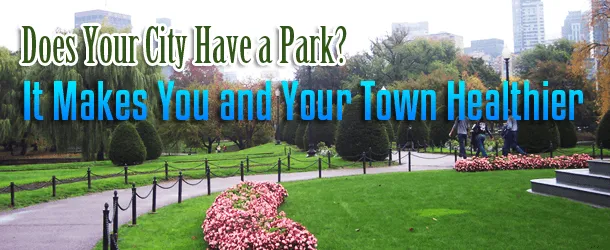
- Share on Facebook1
- Share on Pinterest
- Share on Twitter
Researchers have believed for many years that encouraging urban gardening is important to improving the overall health of cities and areas where people live in large groups. However, the level of impact of urban gardens was not known until recently.
 Improve the Air, Improve Your Health
Improve the Air, Improve Your Health
Large cities are often characterized by vast expanses of concrete, with few green belts or areas with vegetation. They are also frequently characterized by high levels of air pollution, leading to breathing problems for residents. As a result, many cities have made an effort to incorporate city parks and green belts in the hopes that adding vegetation would improve air quality and the overall health of residents.
However, the levels at which green belts and parks impact air quality has surprised researchers. They recently found that planting trees, grass and ivy throughout urban areas can improve air quality by as much 40 to 60 percent. In fact, cities that have larger numbers of parks with trees and plants often see dramatic improvements in air quality that go far beyond expectations.
Having lots of parks can also improve quality of life and health in other ways. With a park close, residents may be more inclined to be physically active and exercise. Children can be encouraged to go outside and play at the park, and residents may want to engage in activities such as bike riding, walking or jogging.
Urban gardens and parks are not limited to planned city-sponsored locations. One option that is available to many residents of urban areas is planting a small personal garden to grow fruits and vegetables. Even in small spaces, it is usually possible to create a small container garden to grow tomatoes, herbs and lettuce. In addition to adding to beneficial air quality, a personal organic garden can be an excellent source of inexpensive quality food. Eating a diet high in fruits and vegetables is also an excellent way to improve your overall health.
– The Alternative Daily
- Share on Facebook1
- Share on Pinterest
- Share on Twitter

